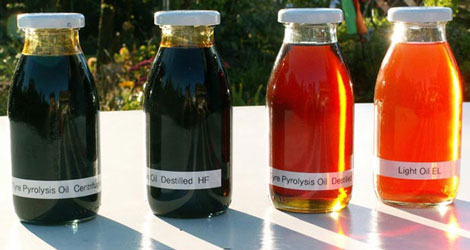
Indian Institute of Petroleum set up plant to convert plastic waste to diesel. This is the fourth facility in the world of its kind where many types of chemicals will be produced from waste plastic. Scientists say this plant can be an answer to the plastic problem in the environment and diesel produced here will be for both industrial and vehicular use.
Daily Current Affairs Quiz 2019
Benefits: “By producing diesel out of plastic waste on a large scale, the plant is not just a good step towards freedom from plastic but will also reduce our dependence on other countries for petroleum products,” Harsh Vardhan said after inaugurating the plant in the presence of Chief Minister Trivendra Singh Rawat.
Significance: The plant took ten years to build after arduous research into the field by the scientists of IIP. It has a capacity of one ton and can produce 800 liters of diesel. Last year, IIP scientists made a biofuel which powered an airplane from Dehradun to Delhi. Harshvardhan said that now such plant will also be installed in other states of the country.
Harshvardhan added that if the BJP forms a government in Delhi, such plant will also be built there since the city generates waste plastic on a large scale. Currently, many NGOs are undertaking the task of collecting waste plastic from homes and converting it into oil.
Terming it a big achievement, Rawat said apart from protecting the environment, the plant will also boost the economic growth of the region.
IIP scientists say that this plant has been started as a pilot project but soon will work at a commercial level. The entire cost of the plant can be recovered within years. The oil produced here will be used for government and army vehicles and also those of institute officials.
Director of IIP, Dr Anjan Ray said, “With the rising demand for oil, such new plants can increase the supply while also protecting the environment. On the other hand, new jobs can also be created as the development in this field picks up.”
The Indian Institute of Petroleum: The Indian Institute of Petroleum, established in 1960, is one of the constituent laboratories of the Council of Scientific and Industrial Research, dedicated to R&D in the hydrocarbon sector.
Plastic Waste Management:
Plastic has increased dramatically, and subsequently, the portion of our garbage that is made up of plastic has also increased from 1% of the total municipal solid waste stream to approximately 13%. Plastic products range from things like containers and packaging to durable goods and non-durable goods including things from a plastic party tray to medical devices. Sometimes marked with a number and a chasing arrow, there is an illusion that all plastics are recyclable, and therefore recycled. While use and consumption of plastic is increasingly high, doubts about viable options for reuse, recycling and disposal are also on the rise. Complications such as the increasing number of additives used alter the strength, texture, flexibility, colour, resistance to microbes, and other characteristics of plastics, make plastics less recyclable. Additionally, there is very little market value in some plastics, leading municipalities to landfill or incinerate plastics as waste. Based on figures from the EPA (2011 data) only 8% of plastic materials are recovered through recycling.
Plastic to Diesel Process
Generally, turning plastic to diesel process needs two major steps: Firstly, the plastics need to be converted into fuel oil by plastic waste pyrolysis plant, which consists of reactor, manifold, condenser system, oil tank, cooling system, hydroseal and dedusting system. The pyrolysis equipment will heat the reactor with high temperature, and when it reaches the related temperature, the waste plastic will generate oil gas in the reactor; then the oil gas will become the liquid oil after passing through the subsequent connected cooling system. The oil can be used as fuel directly. When the oil is fully discharged, the left material is called carbon black, which can be used as additive.
Secondly, use the oil distillation machines to turn plastic oil into diesel. As for this kind of equipment, it is made up of the distillation system, heating system, dedusting system and intelligent electric control system. First of all, put the plastic pyrolysis oil into the tubular furnace to heat, and then through the distillation system, it can produce the oil steam; next, the oil steam will be fractionated into basic diesel through the condenser system; and then after sedimentation and filtration treatment, it will become qualified diesel adding bleaching agent.
The final products of waste plastic pyrolysis machines: fuel oil and carbon black.





